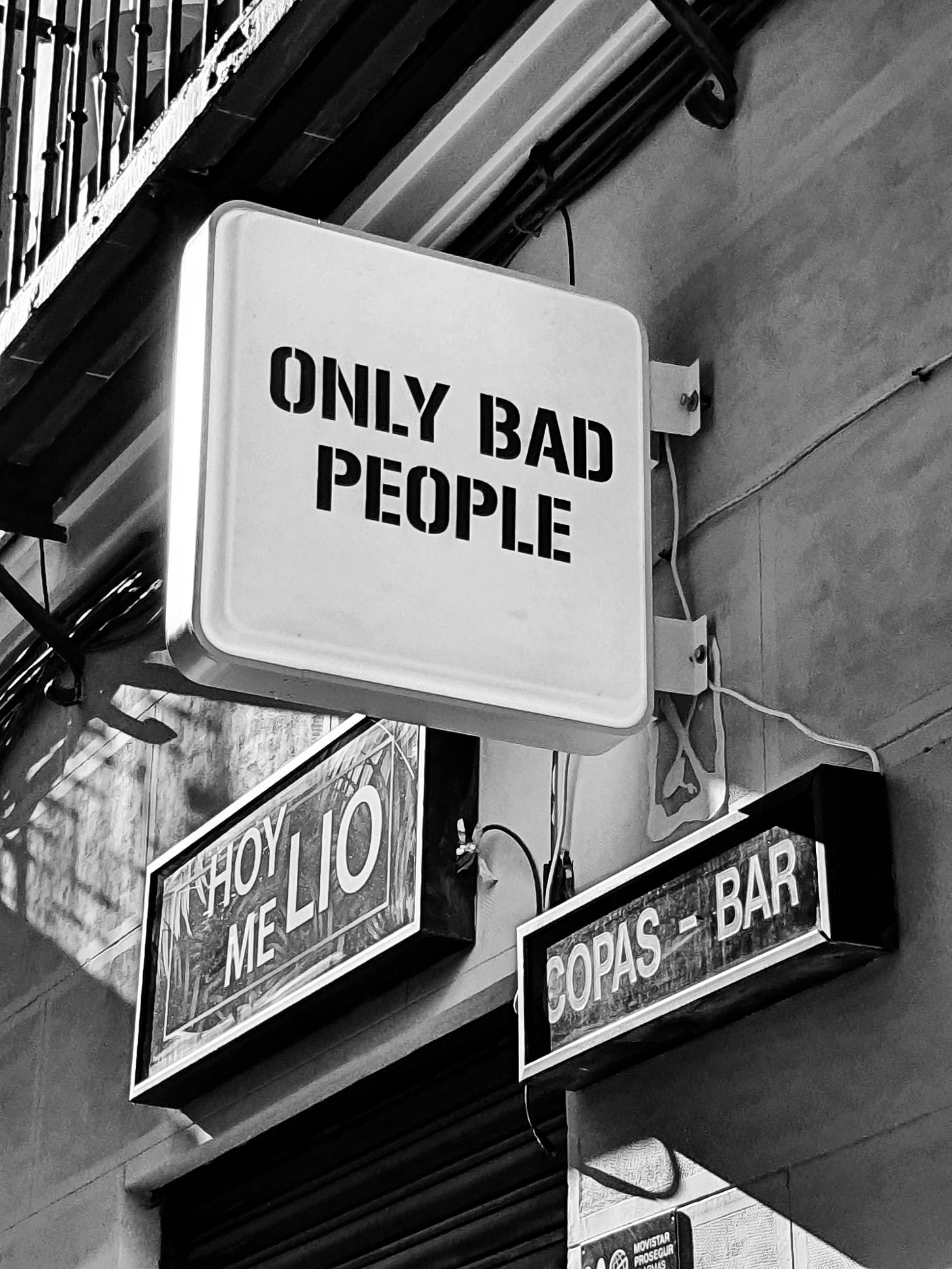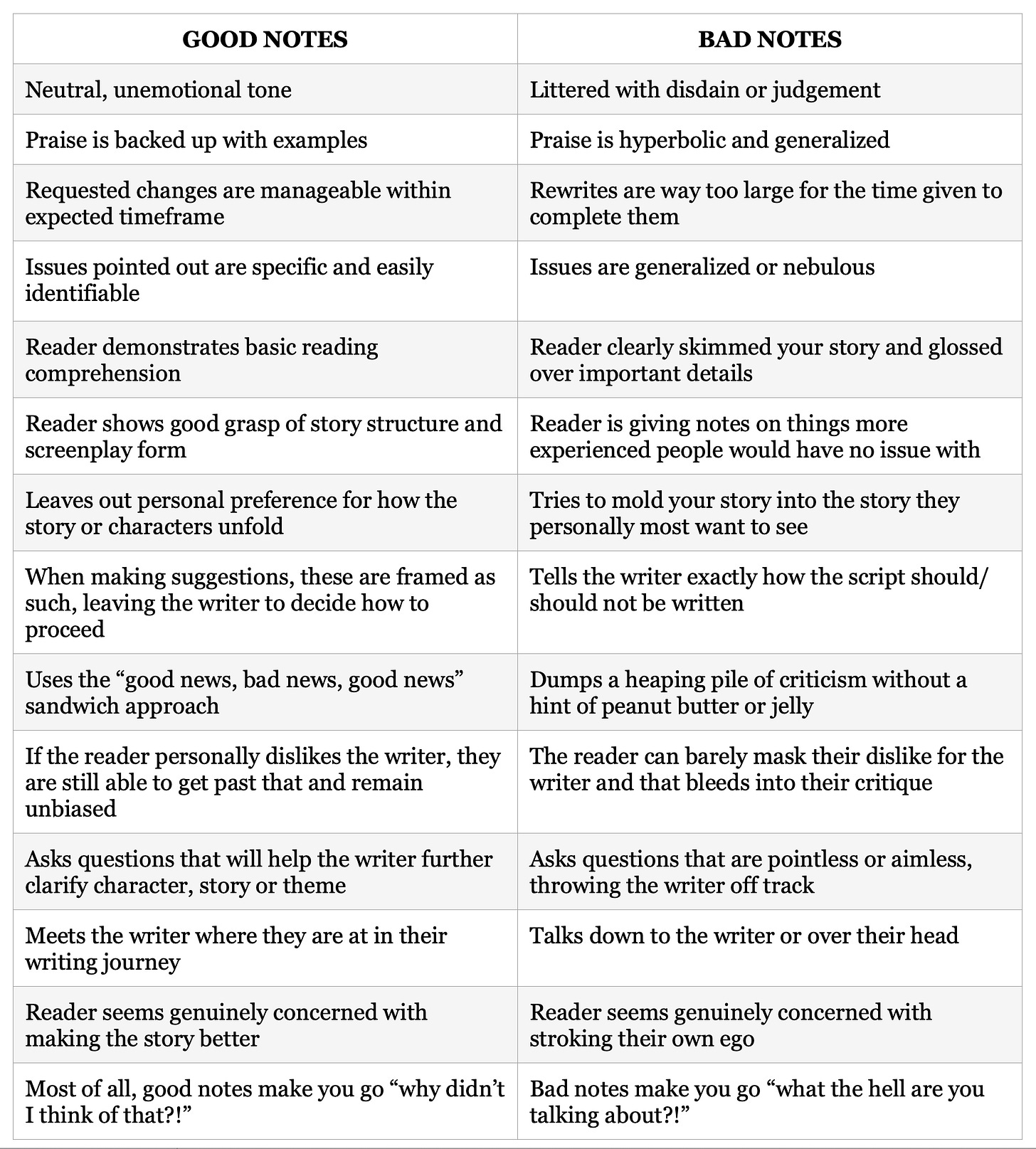Good Notes or Bad Notes? How to Tell the Difference
Garbage or gold? Here's a simple chart to help you sift through the notes you receive on your screenplay
I’ve evolved a lot as a writer.
I’m not talking about my writerly skills or my unique voice. I’m talking about me evolving as a person who writes.
When I was inexperienced, I took extensive notes as a personal attack that could easily damage my fragile ego and drop me into a self-doubt depression for weeks.
I’ve built up a tolerance to notes in the many years I’ve been at this screenwriting game. Truthfully, it’s easier to become immune to their effects on the ego if your next meal is tied to implementing them well.
Generally speaking, at this stage, I see good and constructive notes as the chance to take something I already love and make it even better.
But even for someone who has read “this sucks, make it better” thousands of times at this point, I need you to know, I’m still not fully shielded from the occasional ego-bruise.

The difference now is that I’m depressed just long enough to eat a self-pitying ice cream sandwich before it’s time to get back to work.
I alluded to one of those back-slides earlier this week…
But here’s the full story: The first buyer of my latest TV movie not only approved it with no notes, they even gave me a rare glowing review: “As expected, this is an intriguing, well-constructed and clear proposition. The tension is effective, the heroine is endearing, and it's nice to have a character with complexity and asperity.” I was ecstatic. And a damned fool.
“One down, one to go!” was my thought as my exec sent off the script to the second buyer. Instead, they came back with four massive general notes and 32 (!!!) page notes, which are tied to specific moments or scenes.
Page notes can be deceptive in that they look like small changes. But as we all know, a small change in one scene can have a butterfly effect across the entire script.
Now times that by 32.
That was a bit of a gut-punch, not gonna lie. It took me an ice cream sandwich plus another half a day of moping around to recover. But considering I had less than a week to implement these notes, I couldn’t pity-party for long.
Despite my ego, once I got into the notes, I realized: Shit, these are GOOD. They asked just the right questions. There was no judgement. The suggestions for improvements genuinely resulted in a better script.
In the end, I’m actually glad they gave those EXTENSIVE notes because the story is better now. And I’m even prouder of it than I was before.
This was a huge contrast to notes that I got about a month ago on another script that were… so deeply unhelpful and discouraging… and made me seriously question the reviewer’s most basic reading comprehension skills.
Part of what I’ve learned as I’ve been evolving as a screenwriter is how to tell between good and bad notes. It actually takes a lot of training to spot the difference, since bad notes often try and dress themselves up as good ones.
So, here’s a simple chart to help you tell the difference between good and shitty notes:
If you are lucky enough to get good and constructive notes, go forth and implement them!
Shitty and unhelpful notes can be dropkicked straight into a swamp.
How can you tell a note is gold and not a polished turd? I’d love to know below!




It's been a while since Ive given or received notes, but one thing I try to avoid on both fronts is a tone of condescension.
A note feels like gold when you get excited and feel like the other person is playing with you even if it’s a criticism or suggestion!